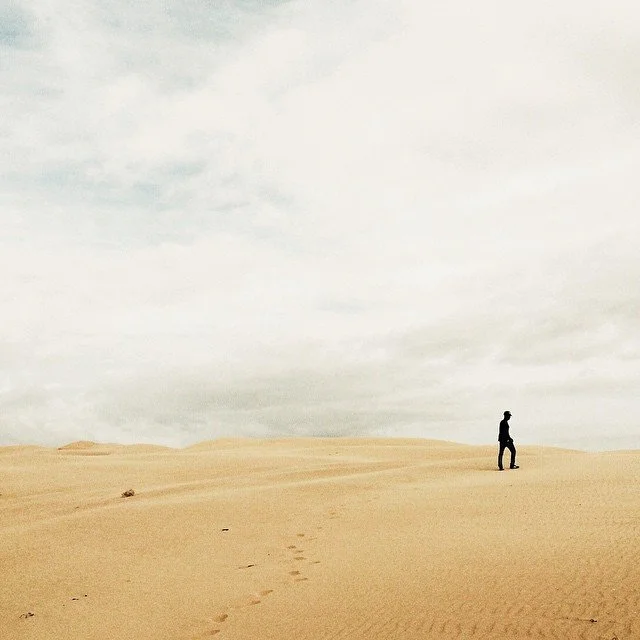MATTHEW BENTLEY
“materializing fantasy”
Art is a living conversation between past and future; between what is and what could be. Shaped by endless iterations. Born from a wish.
Our #artist2lookout4 mirrors this rhythm, crossing disciplines to craft experiences that fuse imagination with reality.
Musician. Photographer. Event producer. Vibe setter. Creative force. Genie.
Say hello to Matthew “Maachew” Bentley aka 063N13/Genie.
Yeah, he’s got a little bit of everything in his book, but it all grows from the same tree. Every branch intentionally curated to draw you in, then root you deeper. Ready to dream? Good. That’s the point.
Look beyond the looking glass. Challenge what you think you know. His artistry is all about ‘materializing fantasy’.
pH Ground Zero | Matthew BentleyBorn and raised in Jamaica, Queens, Bentley studied business & admin mgmt before transitioning into a self-taught creative career. He got his start in music, somewhat reluctantly, as a member of World’s Fair, a Queens-based collective known for blending classic hip-hop influences with experimental sounds.
If you caught up with him then, you’d be met with a very different energy than what he gives off today. He’d tell you himself that era was high-octane and zero calm. An era most of us millennials can relate to and would probably describe as such. I mean, it was the early 2010s and all. What a time...
Of course, he can still drop heavy bass tracks (if the mood calls for it), but what drives him now is crafting soundscapes that evoke pause and reflection. “It’s actually a natural polarity. In my 20s, it was crazy days, big crowds, everything’s coming at you fast. Now I just want to make something that lets people sit still.”
His fave mixes at the moment? Reading playlists or booklists. “It’s the hardest thing to make because you have to balance vocals without breaking that meditative state.” His last project, Coherence captures the ebb and flow of focus, combining ambient, soulful, and jazzy selections. All the tracks are instrumental and have built-in methodical breaks to help listeners reflect on what they just read. A whole mood.
Touring with World’s Fair didn’t just influence his current musical taste; it sharpened his eye. The long stretches on the road kicked in a new passion: photography. “I always wanted to shoot things on film, and film was cheap enough to buy—this is around 2012-2015. The iPhone was fairly new as far as cameras go.”
“Film taught me science and the skill set. The iPhone informed my composition. I never owned a digital camera until recently, so I’d try different things out on my phone. For more serious things, I rely on film because I feel like there is, and there remains, quite a bit of value in executing your task that way.”
From traveling the world with Street Dreams Magazine to capturing everyday city scenes, Bentley’s lens is informed by curiosity and constant exploration.
His latest works, Return The World and pH Ground Zero, chapters in his three-part debut series, feel less like stills and more like portals through layered histories—threads of memory, myth, and identity woven together.
Return The World | Matthew BentleySet in the historic Seneca Village landscape, Return The World invokes healing and transformation, juxtaposing Gundam-style imagery with natural floral elements to symbolize the shift from war to peace.
pH Ground Zero reimagines a culturally loaded symbol through surrealism. He explains: The watermelon is one of the most alkaline fruits, but it’s seen as “savage” because it’s messy to eat without utensils, which were once hard to come by. Despite this, it was one of the first opportunities Black Americans had to build and trade wealth in America. A fact not many people know.
Both pieces are tied in fantasy, calling you to move past the surface to uncover more. The third installment won’t be any different. All I know is that it’s about sleep. He’s keeping details close, so we just have to stay tuned.
He says it’s through repeated iterations that ideas become more refined. “Each era comes with a new challenge that you can use your old wisdom to inform the next one.”
So, where does ‘genie’ come in?
“This is my first time saying this out loud, but I’ve always been of great assistance and support to my peers, even strangers.” Like the unsung sidekicks and mythic guides he grew up admiring—Hadji, Merlin, Robin Williams’ Genie, even Gene the Genie from DuckTales—he’s long played the role of the quiet catalyst. To that end, he’s also always found a way to grant his own wishes. “It's sort of an innate knowing that I can accomplish or achieve any goal I want if I put myself in a position to receive it. A space where I can request this gift from my big Genie in the sky.”
And if he were a genie IRL? Well, he’s got a couple of stipulations: you only get one wish, and you can’t go back to the past for anything.
Tell us something we don’t know—not just about your work, but about the intention and lived experience behind it?
I'm always quietly trying to debunk something. I’m not a debater or someone who's trying to convince anyone of anything or change their minds. So in my art, the intention is always to debunk whatever that myth is. A chief example is [ph Ground Zero], which I've been screaming from the mountain top about for 10 years now. Why are all my white friends into this? And why are none of my Black friends responding to it when I have all this new info? [Debunking] is the baseline from where I jump off every time I'm trying to shoot, show, or exhibit something in the photography or event production space. There's a lot of hubris in the production world, right? Producing or programming an event. A lot of gatekeeping. A lot of people who have been at this level for x amount of time, and it's their way, and it's the only way something can be done. You need this big team, you need all these resources. For some of the festivals I put on, except for stagehands and physical hands, or texting a couple of friends, asking if I’m writing this email the right way, I can confidently say that it was all done by me. No favors were done, and everyone's paid above market. I think a lot of people, and this expands to a lot of other things, but a lot of people are pretty glued to their preconceived notions of what it takes to put on something. Yeah, headaches happen. Mistakes happen. All that stuff is true. But to execute, the thing you need is money and an unstained record. There's really not much else to it.
What have been the top three findings in your pursuit of research and iterations in sight + sound?
Nobody’s wrong. Ever. [For example], there’s this thing in music production that we call “demo-itis”. It’s when you have the last version of a song, but it’s not mixed down yet. Now, it could be your favorite thing you ever made, and you might be listening to that track ad nauseam, sending it to your friends. You might be in that space so much that when it finally gets formally mixed by an engineer, you’re likely to hate it. Even though that's the way most people should have heard it the first time. Now, you’re not wrong. You gotta ask: who’s your audience? Because there’s no one-stop shop for the type of area you’re going to impress or try to impress. No one can tell you this sounds great or sucks. You have to be cool about whatever you make. Whether it’s your 10th iteration, your 20th iteration, you can’t be wrong. [The second thing is] you gotta do it yourself, but you don’t have to do it alone. In my opinion, having sensibilities in many spaces allows you to have conversations in many spaces. [It’s important to] understand different areas of focus. Have the dexterity to jot down things in your life that are useful. It gets you to the next phase. It allows you to bridge a gap somewhere, either by accident or intentionally. And third, it’s 10,000 iterations, not 10,000 hours. You can do something 10,000 times and have 10,000 different results. And you can pick from those which is the best view to step forward on versus doing the same thing. The way you retain information and do things is always going to be how you do it. So, it’s better to iterate constantly. Try a new way every single time until you find your language. And then, that language at the end of your task is exclusively yours. It’s what separates you from the rest.
Thinking back to your first record, Agitator + Reni, how has your relationship to music and storytelling evolved since?
I made a bunch of songs before choosing that one, but that just felt more complete to me. I made it in a cabin in Oregon with my friend Nigel. Felt like Mount Olympus—it was the most peaceful setting ever. And a very angry sound. I think the messaging in the moodboard was far more important than this perfectly mixed song. I've mixed other people's songs before and made mashups, but this was the first song of mine I mixed. I had this theory in my head about a bunch of things, but putting something out that you created from scratch…. Making those songs and samples, having that test run for a month, allowed me to get out of my own way. [At that time], I didn’t make music. Nigel started producing before I did. I was actually his DJ. He shared the program with me, and we were making music on his Nintendo Switch and my iPad. That’s how it started. I got to ask him a bunch of questions in that process. And my frustrations met inspirations met my actual aptitude, which was photography to create alongside that first release. I had all these images that captured what I was trying to speak about. And lo and behold, as fate would have it, I put that out at the end of February 2020, and three weeks later, the planet shut down. I’m back in this time chamber again. The pandemic happened, and I never got to test the record anywhere. Never got to play it in the club where I intended to play it. The song went back to square one. In that same era, that’s when I started making ambient music. My project, Return The World, came from that same cabin experience. That high, low, fast, and slow—that's just kind of where I stayed. It’s the healthiest place for me to be making music.
Speaking of a return to the world, your artistry often portrays emotional and symbolic layers. How do community, healing, and purpose intersect in your creative process?
It usually has nothing to do with anyone. Like, Return The World was a collaborative project. It was something that was inspirationally brought to me, and I built that world around this initial idea, which was to create this anime from Gundam. And then, it developed into something bigger. And Agitator, that came from the Agitator Index, which is this CIA MK Ultra conspiracy theory from the 40s, 50s and 60s that speaks to taking out important historical figures and political leaders. An agitator isn’t always someone approaching the world from a violence standpoint. It’s someone who’s disrupting something that’s disrupting. The only thing I can appreciate is trying to inform myself about the world and pouring myself into the world.
Is there a central message or philosophy you find yourself returning to, no matter the medium you’re working in?
Materializing fantasy. If I had to synthesize it now, there isn’t a finish line. There isn't something or some person or group of people or timeline I'm trying to fit any of my ideas into. The world informs me when it does to do something or put something out. There is some gift and curse in that convenience, of course, because you should probably just let go. There is extreme value in just sending it off to the races. If it's never heard or seen or experienced, that’s fine because you got it out of your to-do list. Overall, I think that materializing fantasy component allows the work, in whatever medium, to exist in any timeline. My inspiration might be about today, but the original story is God knows how long. Like, the Legend of Zelda is compared to King Arthur. It's been 30 years since its release, at least, and I'm now iterating and putting it in another lens. The Agitator cover art comes from my first sighting of that Danny Clinch photo of Big L, still 30 years ago. And that image comes largely from a lot of images from the Gordon Parks Foundation and Harlem—a bunch of leaders that we know and don't know today in music and in the arts, politics, and social sciences. And that all comes 60 years from the 1920s, when the Moorish Temple of Science was created in Chicago. None of it quite matters until it matters. [The Agitator] image is also inspired by the apparition. You can't quite see every face, and there isn't really a face to see. And, I shot it on this film that was rebarreled from cinema film from the 80s. So that image will never look like that ever again. Old tech meeting new tech, advancing technology and methodology. I’m recycling, repurposing, and adding this 21st-century element to all the iterations.
You just wrapped an exciting exhibition with 5x5 Collective, unveiling pH Ground Zero, the second chapter in your three-part debut series. With just one installment left, what's on the horizon for the final piece? Can you speak more to the series as a whole?
The world informs me to do this thing. The last piece is about sleep, or state of sleep. [More specifically], SWS, or slow-wave sleep. It’s before REM sleep. It’s meant to represent——. Actually, I won't tell you what it is. But the goal is to exhibit it via a combination of dampening sound and vision, so that you can go to sleep. I feel like now more than ever, we're inundated with attention-grabbing anything. The series is an introspective about repair and elevation of our current state.
The future of the 063N13verse—what does it look like?
My wish is to continue these iterations of complementary sciences, the arts—music and photography, marrying these two. One of my goals is to inspire this sort of generalist approach to building your branches from a root where one allows for the other. Name any mogul you want. They're rooted in one thing, and from there, they build out their ideas and concepts. They do what they need to do, short branches and long. I just want to continue down that path. I have some major productions that I would love to have all the money in the world to just do them. I know the world wants me to tour. I'm cool. I’ll get there when I get there. Whatever your discipline is, creating is not up to you to define it. For lack of better words, it’s timeless iterations of your science. It's not how many books you’ve read, it’s how many books you retain. Attention is important. I hope it sticks.
-
Oct 20, 2025


























